Iran says still ready for talks if US lifts sanctions
As IAEA warns Iran against intimidation
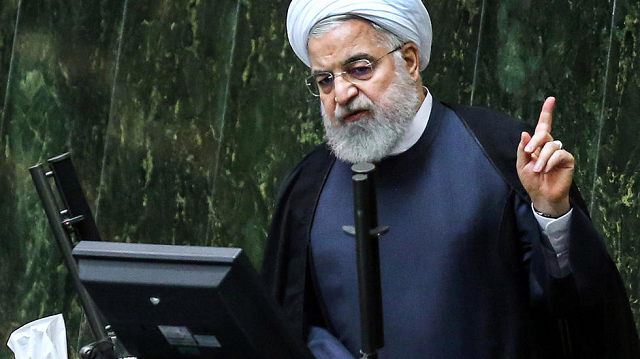
Iranian President Hassan Rouhani. PHOTO: AFP
European countries have been pushing for talks with Iran to salvage a 2015 nuclear deal that has all but collapsed since the United States withdrew and reimposed sanctions last year.
Rouhani has long demanded the lifting of US sanctions for Iran's return to talks under the auspices of the so-called P5+1 that reached the deal - the five veto-wielding permanent members of the UN Security Council plus Germany.
His latest statement comes after a shock announcement in mid-November that the price of petrol was going up by as much as 200 percent triggered demonstrations across Iran that turned deadly.
The decision came at a sensitive time ahead of a February parliamentary election.
It is a rise many Iranians can ill afford in a country whose sanctions-hit economy is expected to contract by 9.5 percent this year.
New broom at UN nuclear watchdog as Iran tensions rise
"If they are prepared to put aside the sanctions, we are ready to talk and negotiate, even at the level of heads of the 5+1 countries," Rouhani said in remarks aired live on state television.
"We are under sanctions. This situation... is (because of) incitement by the Zionists and the region's reactionary," he said, referring to Iran's regional rivals Israel and Saudi Arabia.
His remarks came after France and Germany raised the possibility of triggering a mechanism in the deal that could lead to the reimposition of UN sanctions.
Rouhani described the sanctions as "a cruel act by the White House".
"We have no choice but to resist and persevere," he said. "At the same time, we have not closed the window for negotiations.
"I tell the nation of Iran that any time America is prepared to lift and put aside its wrong, cruel, unlawful, incorrect, terrorist sanctions, immediately the heads of 5+1 can meet and we have no problem."
The landmark 2015 deal gave Iran relief from economic sanctions in return for curbs on its nuclear programme.
It has been at risk of falling apart since US President Donald Trump unilaterally withdrew from it in May last year and reimposed sanctions.
Known formally as the Joint Comprehensive Plan of Action (JCPOA), it was agreed between Britain, China, France, Russia and the United States, plus Germany.
Twelve months on from the US pullout, Iran began reducing its commitments to the deal hoping to win concessions from those still party to the accord.
Its latest step back came last month, when engineers began feeding uranium hexafluoride gas into mothballed enrichment centrifuges at the underground Fordow plant south of Tehran.
In his remarks, Rouhani said his government strived to remain in the nuclear deal despite "pressures" that were on it.
The statement comes after angry demonstrations erupted against a shock decision to raise petrol prices on November 15.
London-based human rights group Amnesty International said on Monday that at least 208 people were killed in a crackdown on the demonstrations, citing what it called credible reports.
Iran's judiciary spokesperson Gholamhossein Esmaili on Tuesday rejected as "utter lies" unofficial casualty figures given by "hostile groups" based abroad.
On Monday night, state television charged that foreign media had been "hyping up" the death toll.
It said "the security forces had no choice but to resort to authoritative and tough confrontation... and a number of rioters were killed".
The unrest started hours after it was announced that the price of petrol would rise from 10,000 rials per litre to 15,000 (12 US cents) for the first 60 litres, and to 30,000 rials for any extra fuel bought after that each month.
Rouhani has said proceeds would go to the most needy.
State news agency IRNA said the payments had since been made in three instalments between November 18 and 23.
IAEA warns Iran against intimidation
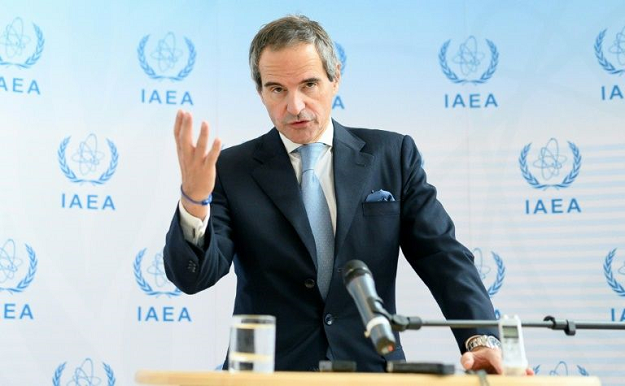 Rafael Grossi said the incident in Iran involving an IAEA inspector was "a serious matter". PHOTO: AFP
Rafael Grossi said the incident in Iran involving an IAEA inspector was "a serious matter". PHOTO: AFPOn Tuesday the new head of the UN nuclear watchdog warned against intimidating its inspectors after one of them had their accreditation revoked by Iran over an incident at a nuclear facility.
"We don't want to make something out of proportion but this is a serious matter," Rafael Grossi, the director general of the International Atomic Energy Agency (IAEA), said.
"I stand by my inspectors and (they) have a very important work to do, they shouldn't be intimidated... in any way," he told AFP.
Last month, Iran confirmed it had revoked an IAEA inspector's accreditation in October after she allegedly triggered a security check - used to detect explosives - at the entrance gate to the Natanz enrichment plant.
She was temporarily prevented from leaving Iran, which the Vienna-based IAEA described as "unacceptable".
The agency has said there was "no indication that would confirm" the allegation that she was carrying explosive material.
Grossi said the IAEA and Iran "haven't come to a common understanding" over the facts of what happened in the incident.
The agency's inspectors monitor the implementation of the 2015 deal on Iran's nuclear programme - known as the Joint Comprehensive Plan of Action (JCPOA) - which seems in danger of imminent collapse.
Grossi - who began work as director-general on Tuesday - said: "Countries must not interfere with the work of our inspectors and this is the message we have conveyed to our Iranian colleagues".
He said it was important for inspectors to know that from the point of view of the agency, they "will always be backed up and never left alone otherwise the whole edifice of international inspectors would crumble and fall".
Grossi said that Iran's nuclear programme was one of the priorities he would tackle "immediately" and added he may meet Iranian officials who will be in Vienna later this week for a meeting of remaining JCPOA participants.
On Sunday, the speaker of Iran's parliament Ali Larijani warned Tehran would be "forced to seriously reconsider some of its commitments" to the IAEA if the European parties to the JCPOA were to trigger a dispute mechanism that could lead to sanctions.
Grossi said while the IAEA "paid attention" to such statements, "it doesn't mean that it affects in a direct manner what we're doing" and that no such communication had been received directly from Iran.
Grossi added that such comments were "part of a political discussion between Iran and other countries, not us".
For several months, the IAEA has also been asking Iran to explain the presence of uranium particles at an undeclared site, thought to be a location in the Turquzabad district of Tehran where Israel has alleged secret atomic activity in the past.
Grossi said the IAEA was yet to receive "a satisfactory explanation", adding that while the agency had not set any deadlines, "anybody taking this seriously would never allow it to go on and on".
Six European countries join barter system for Iran trade
Next week, he will attend the UN's COP25 climate change summit in Madrid to discuss how nuclear energy can contribute towards solving the climate crisis.
Many environmentalists see nuclear power as polluting and unsafe.
While Grossi said he was prepared to engage in debate, he insisted that "it's a scientific fact that nuclear energy has a very low degree of emissions" and that it could be "part of the solution".
"If industrial countries, relying heavily on nuclear energy... stopped using nuclear energy, the environmental situation with emissions would be catastrophic."

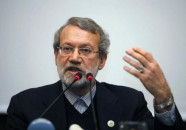
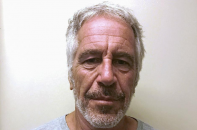
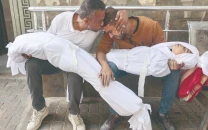
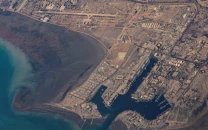
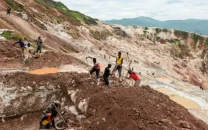
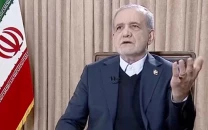












COMMENTS
Comments are moderated and generally will be posted if they are on-topic and not abusive.
For more information, please see our Comments FAQ